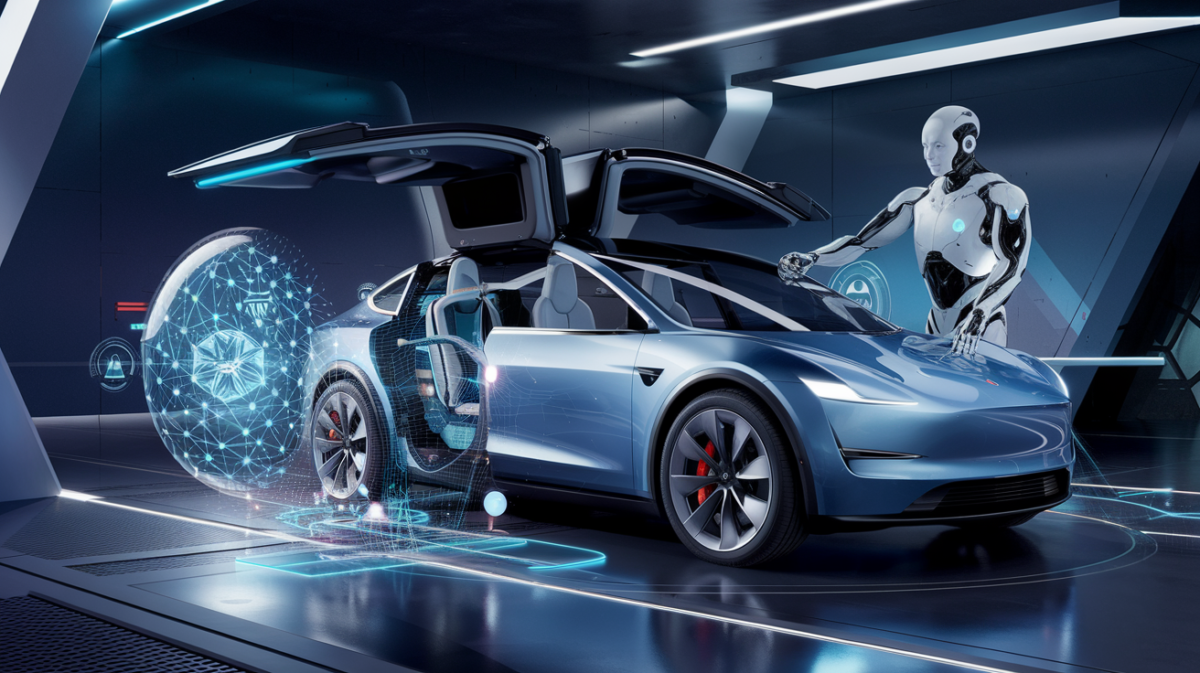Elon Musk has never been one to shy away from bold visions, and his latest moves with Tesla are no exception. The billionaire entrepreneur has long argued that Tesla is more than just a car company—it’s a technology powerhouse focused on autonomy and robotics. Now, with proposals for Tesla to invest in his AI startup, xAI, Musk is doubling down on this vision, signaling a strategic shift that could redefine the company’s future.
Musk’s Vision: Tesla as a Tech Leader
In a 2024 interview, Musk made his stance clear: “If you value Tesla as just like an auto company… it’s just the wrong framework.” He emphasized that Tesla’s true potential lies in solving autonomy, a goal that extends far beyond manufacturing electric vehicles (EVs). This perspective is now driving Tesla’s pivot toward artificial intelligence (AI) and robotics, with projects like the humanoid robot Optimus taking center stage.
Musk’s endorsement of Tesla investing in xAI—his AI startup that owns the social media platform X and develops the ChatGPT alternative, Grok—further underscores this shift. By integrating AI advancements with Tesla’s technological focus, Musk aims to position the company as a leader in multiple cutting-edge industries.
The Debate Over Tesla’s Direction
Internally, Tesla has faced debates about its strategic priorities. While some executives pushed for a stronger focus on affordable EVs, Musk initially favored developing fully autonomous robotaxis. Eventually, he endorsed the $25,000 car project to address market demands, but his broader vision for Tesla remains firmly rooted in AI and robotics.
Externally, not everyone is convinced. Some investors and analysts have expressed concerns that Musk’s focus on non-automotive ventures could distract from Tesla’s core business. In June 2024, Forbes reported growing frustration among shareholders who felt Musk was neglecting Tesla’s automotive roots.
Why AI and Robotics Matter for Tesla
Musk’s push into AI and robotics isn’t just about diversification—it’s about future-proofing Tesla. Here’s why this shift makes sense:
- Autonomy: Tesla’s self-driving technology is a cornerstone of its business. By deepening its AI capabilities, the company can accelerate progress toward full autonomy.
- Robotics: Projects like Optimus could open new revenue streams, from industrial applications to consumer robotics.
- Integration: AI advancements can enhance Tesla’s energy products, such as solar panels and Powerwalls, creating a more cohesive ecosystem.
Comparing Tesla’s Traditional vs. Future Focus
| Traditional Focus | Future Focus |
|---|---|
| Electric Vehicles (EVs) | Autonomous Driving and Robotaxis |
| Battery Technology | AI and Machine Learning |
| Manufacturing | Humanoid Robotics (Optimus) |
What’s Next for Tesla?
With a shareholder vote looming on whether Tesla should invest in xAI, the company stands at a crossroads. If approved, this move could mark the beginning of a new era for Tesla—one where AI and robotics take precedence over traditional automotive manufacturing.
For Musk, the path forward is clear: Tesla’s future lies in technological innovation, not just cars. Whether investors and the market will fully embrace this vision remains to be seen, but one thing is certain: Elon Musk is betting big on a future where Tesla is at the forefront of AI and robotics.
Key Takeaways
- Elon Musk views Tesla as a technology company, not just an automaker.
- The proposed investment in xAI aligns with Tesla’s focus on AI and robotics.
- Internal debates and external skepticism highlight the challenges of this strategic shift.
- AI and robotics could unlock new growth opportunities for Tesla beyond EVs.
As Tesla continues to evolve under Musk’s leadership, the world will be watching to see whether this bold bet on technology pays off.







